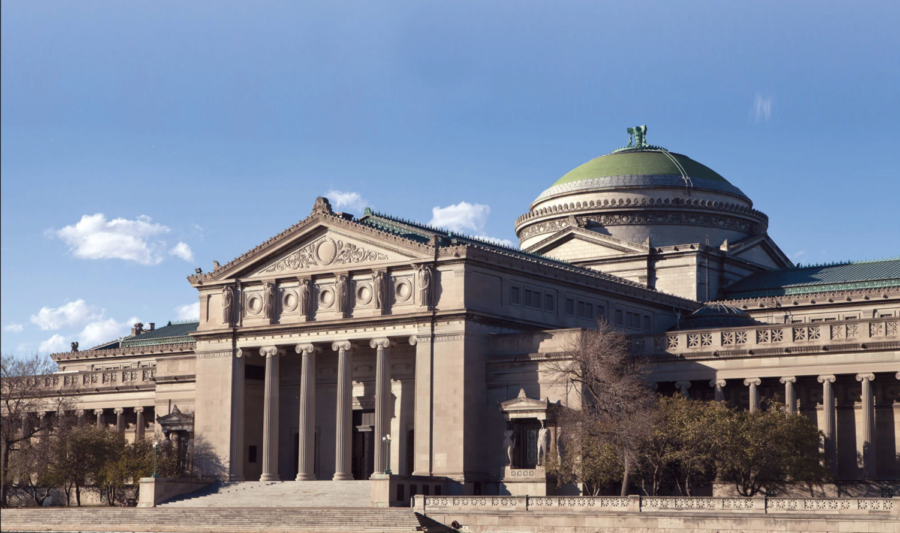On Tuesday, June 15, the Chicago Humanities Festival hosted a virtual event to consider the future of museums across the U.S. in light of changes caused by the pandemic.
The conversation was moderated by Lisa Yun Lee, the executive director of the National Public Housing Museum, who began the discussion with a question on how museums would change their policies and rhetoric among staff in response to the Black Lives Matter (BLM) movement to better serve their goals of uplifting Black communities.
Chevy Humphrey, who became CEO of the Museum of Science and Industry (MSI) in January, wanted to ensure that more opportunities were available to Black communities through her own work as a leader and organizer for museum projects.
“Speaking to a lot of my colleagues, MSI held internal dialogues about how to be better support for the Black community. Both from our staff to our communities we serve, we were a trusted source and a safe place to have these conversations,” Humphrey said.
Lee began the conversation by referencing the history of MSI and its founder, Julius Rosenwald.
“There’s a kind of direct link from the MSI’s founding to someone with [a] vision of racial justice and equity,” Lee said, referring to Rosenwald’s friendship with activist Jane Addams.
Elizabeth Merritt, the founding director of the Center for the Future of Museums, felt that while some of the statements of support were lackluster, they were a necessary first step in making permanent change for the BLM movement.
“I think the harder step has been figuring out how to make real progress past [those statements]. Both American museums and our colleagues in the U.K. are finding that the really hard bar to move is the composition of our own boards and staff,” Merritt said.
Lee then asked the participants to consider how museums adjusted to social distancing and other pandemic policies that required many indoor-only spaces to close.
Humphrey and Merritt shared that the various museums and centers with which they are familiar found meaningful ways to interact with attendees without operating in person. Museums like MSI have also been able to assist their communities in ways that align with MSI’s personal mission statement of inspiring and educating young people in science, technology, medicine, and engineering.
“What COVID did was bring inequity in education. You had schoolchildren who were in homes with no internet. You had hospitals without [personal protective equipment]. You had so many things that you had to provide in the community,” Humphrey said. The MSI partnered with community organization, libraries, and local parks to donate 4,000 science activity kits to families and to distribute 8,000 pieces of personal protective equipment (PPE) made from the museum’s 3D printers to medical workers.
Merritt believes that many of the advancement practices that went into effect due to COVID-19 are proof that museums have the ability to educate and differentiate the roles of their staff so that there are fewer credential requirements and more opportunities for in-house skill development.
“This comes under my heading of revisiting assumptions we had that did not serve us well, in this case who has what appropriate credentials to do what. Maybe we’ve over-professionalized,” Merritt said.
Merritt imagines that remote work in the future could benefit many museum workers.
“One of the big issues for the nonprofit field has been paying a living wage in cities that have really high living expenses,” Merritt said. “Maybe in the future, one of the things museums can do is have some people who are doing kinds of work that don’t require them to be on site and pay a good living wage for where that person is living…and still have the opportunity to contribute to the museum’s work.”
Lee added that museums could take steps to make living nearby less costly. “It’s imperative for [museums] to prioritize affordable housing in the communities that they are operating in.… We can’t just operate in a silo.”
Lee also said that climate change is prompting many museums to try to reduce their carbon footprint. The MSI has been working to educate members on how to be more sustainable and moving forward with projects that explore green energy.
Humphrey feels personally motivated to address climate change as she has seen firsthand its effects on marginalized communities. “My mother had to teach…in Port Arthur, Texas, which is next to refineries, and it was a predominantly Black community. And 85 percent of the people who lived in that community had lung disorders.”
Merritt believes that museums should model the appropriate course of action when considering the drastic effects climate change can have on coastal communities or communities where temperatures are already rising.
“I think museums, as leaders in their community and as trusted sources of information, could be helping communities around the country decide how they’re going to respond as a community to climate change,” Merritt said.
“People trust museums more than they trust their grandmothers,” Lee said.











